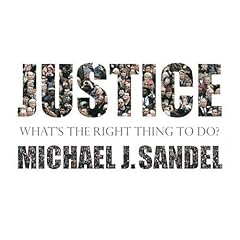
Meditations on First Philosophy
With Selections from the Objections and Repiles
No se pudo agregar al carrito
Solo puedes tener X títulos en el carrito para realizar el pago.
Add to Cart failed.
Por favor prueba de nuevo más tarde
Error al Agregar a Lista de Deseos.
Por favor prueba de nuevo más tarde
Error al eliminar de la lista de deseos.
Por favor prueba de nuevo más tarde
Error al añadir a tu biblioteca
Por favor intenta de nuevo
Error al seguir el podcast
Intenta nuevamente
Error al dejar de seguir el podcast
Intenta nuevamente
$0.00 por los primeros 30 días
POR TIEMPO LIMITADO
Obtén 3 meses por US$0.99 al mes
La oferta termina el 29 de enero de 2026 11:59pm PT.
 Exclusivo para miembros Prime: ¿Nuevo en Audible? Obtén 2 audiolibros gratis con tu prueba.
Exclusivo para miembros Prime: ¿Nuevo en Audible? Obtén 2 audiolibros gratis con tu prueba.
Solo $0.99 al mes durante los primeros 3 meses de Audible Premium Plus.
1 bestseller o nuevo lanzamiento al mes, tuyo para siempre.
Escucha todo lo que quieras de entre miles de audiolibros, podcasts y Originals incluidos.
Se renueva automáticamente por US$14.95 al mes después de 3 meses. Cancela en cualquier momento.
Elige 1 audiolibro al mes de nuestra inigualable colección.
Escucha todo lo que quieras de entre miles de audiolibros, Originals y podcasts incluidos.
Accede a ofertas y descuentos exclusivos.
Premium Plus se renueva automáticamente por $14.95 al mes después de 30 días. Cancela en cualquier momento.
Compra ahora por $13.55
-
Narrado por:
-
Paul Hecht
-
De:
-
René Descartes
Los oyentes también disfrutaron:




















Las personas que vieron esto también vieron:








only the ones to look up may engage.
Honest Account of a lonely existence.
Se ha producido un error. Vuelve a intentarlo dentro de unos minutos.
Important, though not well read.
Se ha producido un error. Vuelve a intentarlo dentro de unos minutos.
headings aren't optional?
Se ha producido un error. Vuelve a intentarlo dentro de unos minutos.
There is still a lot of wisdom in his words
Good stuff
Se ha producido un error. Vuelve a intentarlo dentro de unos minutos.
Not finished
Se ha producido un error. Vuelve a intentarlo dentro de unos minutos.


